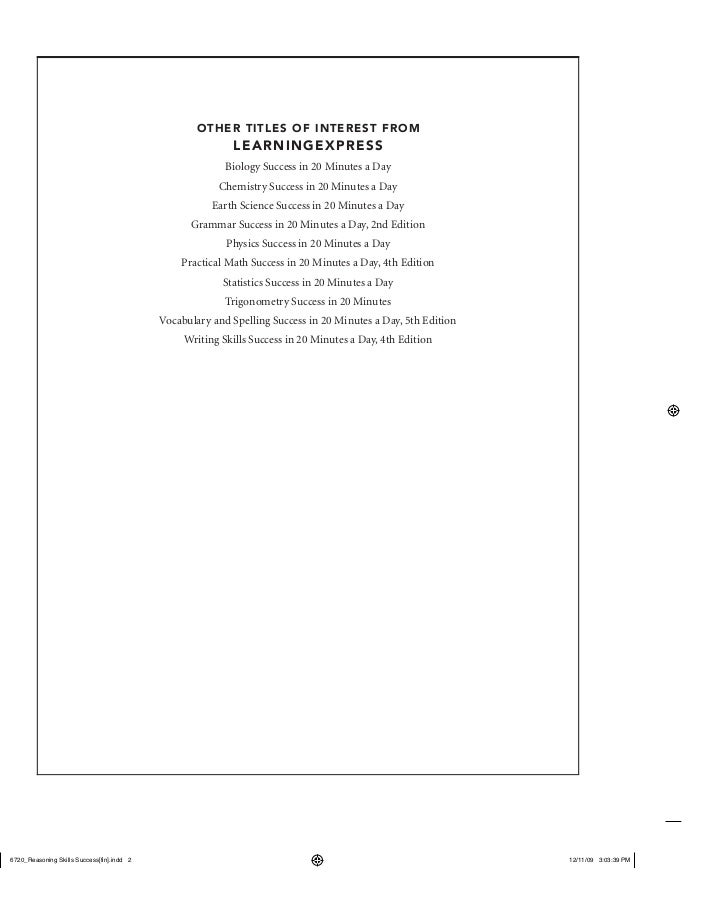2nd Edition Introduction Reasoning Skills
Overview
Reviews “With its new glossary and appendix material, novel real-life examples and freshly created summary boxes, Arp and Watson's second edition of Critical Thinking is now the most incisive (and still affordable) introduction to the subject matter. Philosophy majors, law school aspirants, students taking the GRE, of if you just want to improve your reasoning skills-this is the book for you.”.
Critical Thinking: An Introduction to Analytical Reading and Reasoning, Second Edition, provides a nontechnical vocabulary and analytic apparatus that guide students in identifying and articulating the central patterns found in reasoning and in expository writing more generally. Understanding these patterns of reasoning helps students to better analyze, evaluate, and construct arguments and to more easily comprehend the full range of everyday arguments found in ordinary journalism.
Critical Thinking, Second Edition, distinguishes itself from other texts in the field by emphasizing analytical reading as an essential skill. It also provides detailed coverage of argument analysis, diagnostic arguments, diagnostic patterns, and fallacies.
Opening with two chapters on analytical reading that help students recognize what makes reasoning explicitly different from other expository activities, the text then presents an interrogative model of argument to guide them in the analysis and evaluation of reasoning. This model allows a detailed articulation of 'inference to the best explanation' and gives students a view of the pervasiveness of this form of reasoning. The author demonstrates how many common argument types—from correlations to sampling—can be analyzed using this articulated form. He then extends the model to deal with several predictive and normative arguments and to display the value of the fallacy vocabulary.
Ideal for introductory courses in critical thinking, critical reasoning, informal logic, and inductive reasoning, Critical Thinking, Second Edition, features hundreds of exercises throughout and includes worked-out solutions and additional exercises (without solutions) at the end of each chapter. An Instructor's Manual—offering solutions to the text's unanswered exercises and featuring other pedagogical aids—is available on the book's Companion Website at www.oup.com/us/wright.
See a Problem?
Preview — Introduction to Reasoning by Stephen Toulmin

Be the first to ask a question about Introduction to Reasoning
The hero of Moliere's play The Bourgeois Gentleman was surprised to learn from his grammar teacher that he had been 'talking prose for forty years.' People who begin studying logic or argumentation or rhetoric in adult life today must often feel something of the same surprise. Yet, in fact, the use of language for the purposes of reasoning or argumentation pla...more
This can be great for any beginner in the field of logic or anyone straddling between logic and some other functional field.

Jul 15, 2018
Aug 08, 2016
Dec 31, 2014